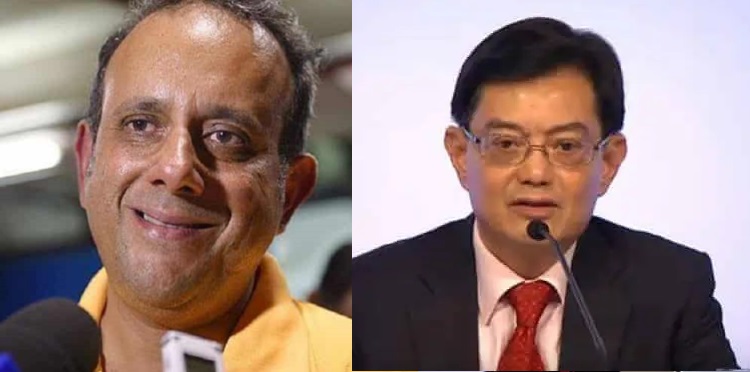As Singapore focuses on ramping up COVID-19 test rates, especially among migrant workers, the country is also looking to diversify its sources of COVID-19 testing resources, said the Ministry of Health’s director of medical services Kenneth Mak on Tuesday (12 May).
At the moment, around 3,000 migrant workers living in dormitories are tested for the virus on a daily basis, but the Government wants to increase the testing rate in the next few weeks in order to make sure that these workers are free of the virus before resuming work.
While addressing reporters in a virtual press conference, Associate Professor Mak said that Singapore’s decision to intensify its testing rate is taking place at a time where many countries around the world are also doing the same.
“There are many countries who are…also ramping up their test capacity at the same time as we are. And we all have a common interest of wanting to test more people within our communities, and therefore there will inevitably be some competition for resources,” he said.
He added, “This is the reason that we want to diversify where we will procure our various test kits and test resources.”
On Tuesday, Singapore announced that it plans to test all 323,000 migrant workers living in cramped dormitories in the country as they make up the biggest chunk of infected cases here.
As of today (13 May), there are a total of 25,346 positive cases of the deadly coronavirus in Singapore, taking the country to the number one spot for the highest number of infections in Southeast Asia. Most of the cases in Singapore are detected among migrant workers living in unsanitary and overly-crowded dormitories.
Just over two weeks ago on 28 April, Health Minister Gan Kim Yong said that, at the time, 21,000 migrant workers living in dormitories have been tested for the virus. That’s about one in 15 workers, he said. At the time, 12,183 worker in dormitories were confirmed to have the virus. Currently, that number stands at 22,334 cases among migrant workers in dormitories.
Mr Gan also said then that testing capacity for migrant workers was at about 3,000 a day, and that the MOH is increasing its testing capacity.
Singapore gets testing kits from three sources
At the virtual press conference, Prof Mak explained that the city-state gets its testing kits from three main sources which are: local companies that have the capabilities to generate such kits, research partners like the Agency for Science, Technology and Research, as well as from various other countries around the globe such as China and South Korea.
Apart from looking to diversify its sources, the Republic has also tried to decrease its dependency on different steps within the test stream. This is because each step requires reagents and there can be a short of supply for this at times.
As such, Prof Mak explained that one way to go around this is to use tests that circumvent the need for certain reagents, which can help bypass some of the issues relating to competition and limited supply.
“These are some of the strategies we have to make sure that we have sufficient test capacity, not only for our current needs, but (by) continuing to expand the capacity for future needs as well,” he stated.
Systematic testing strategy to be implemented
Separately, the Government also revealed that a systematic testing strategy will be implemented in order to ensure that migrant workers are truly free of the COVID-19 virus before returning to their dormitories and resuming work after the circuit breaker period ends on 1 June.
National Development Minister Lawrence Wong said on Tuesday that serology tests will be carried out first at dormitories with high infection rates.
The test will detect the presence of antibodies to the virus in a person’s bloodstream, indicating that they have been infected with the virus in the past and have recovered. Antibodies may also suggest that the individual is now immune to the virus.
Those who have been tested negative for serology tests, however, will have to undergo a polymerase chain reaction (PCR) test to detect the presence of an infection. Mr Wong said that PCR tests will either be done individually or in batches, meaning in pooled testing.
The Minister explained that serology and PCR tests are part of a systematic and thorough process which can be implemented to verify the health status of workers before they get back to work and to “clear the dorms”.






